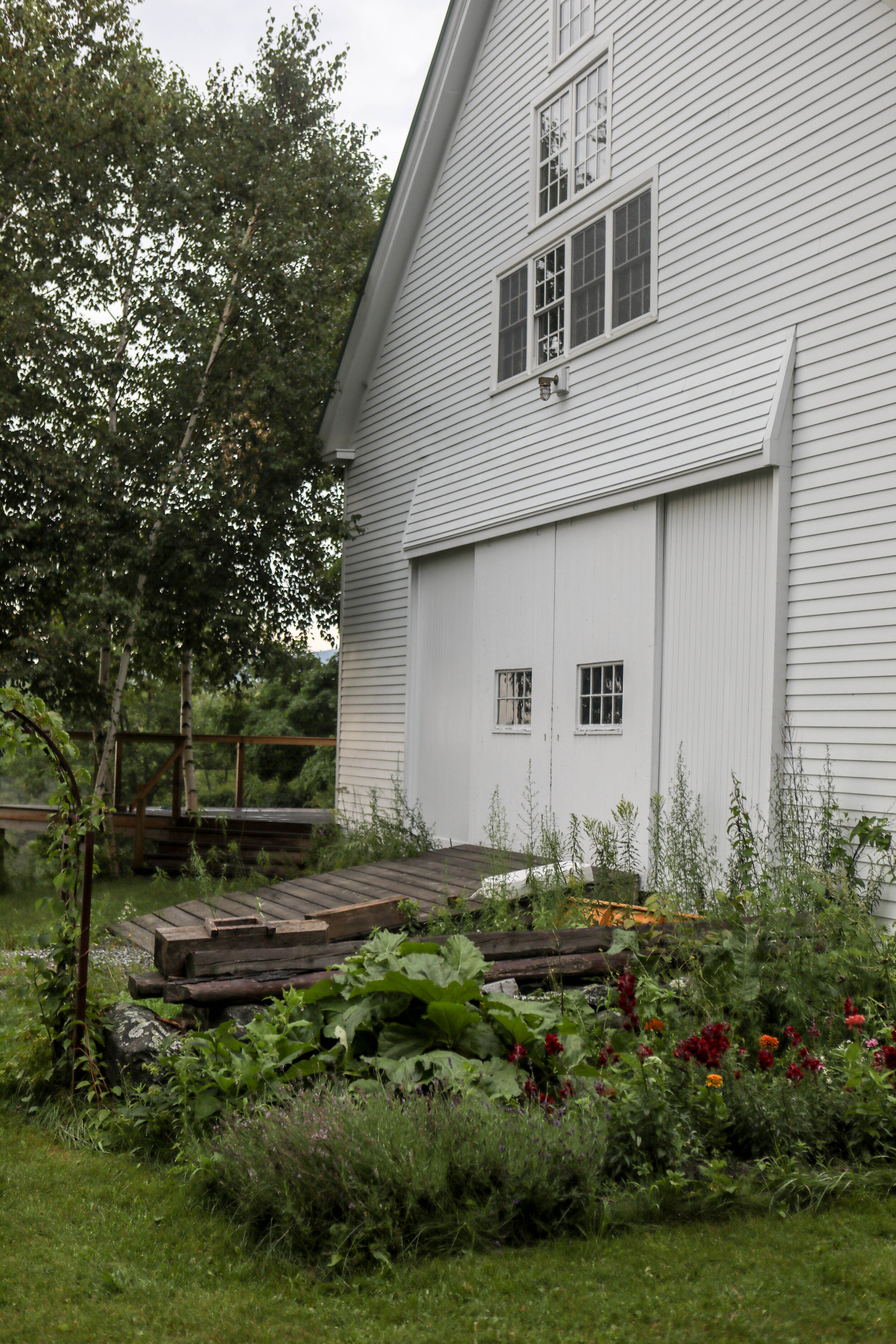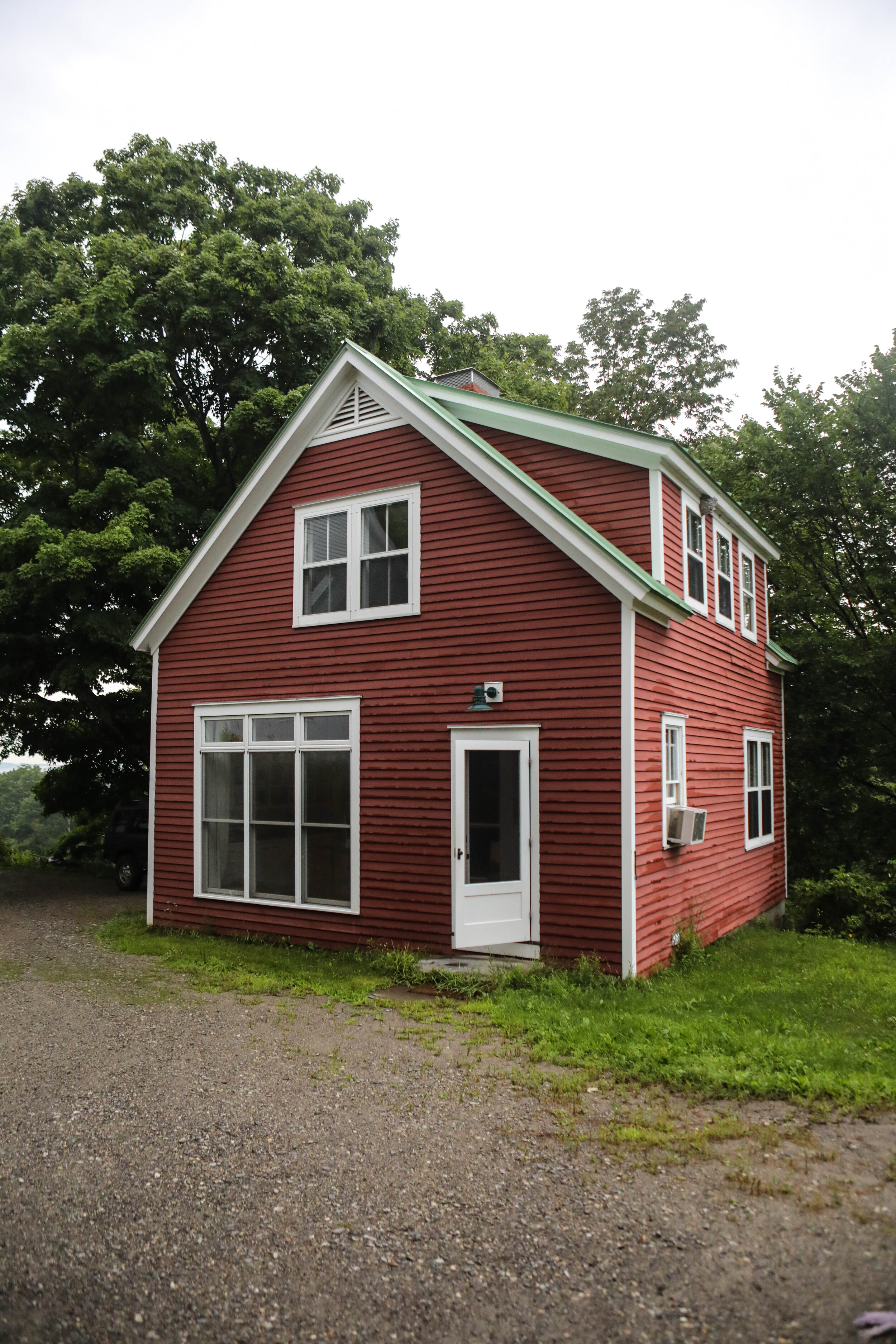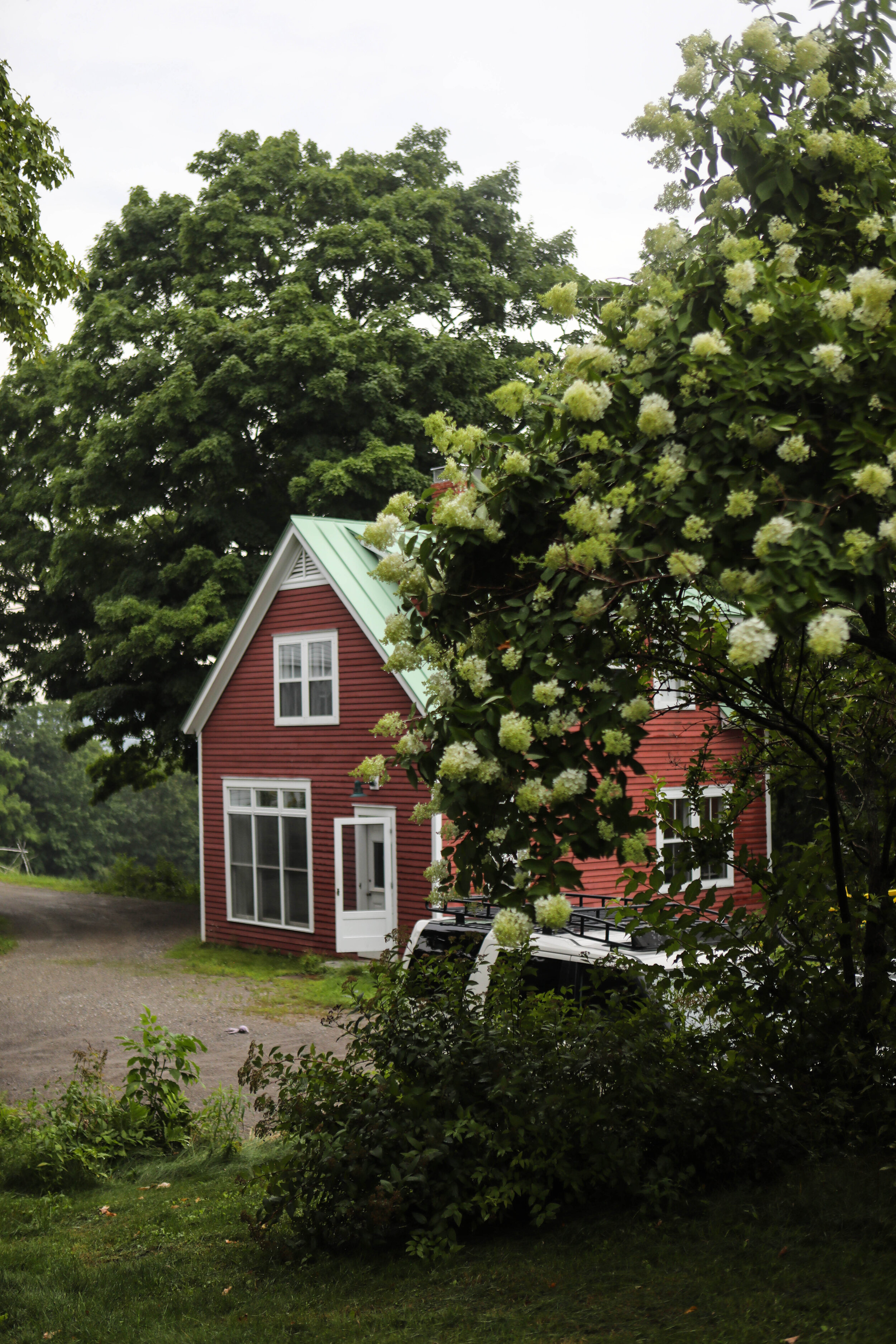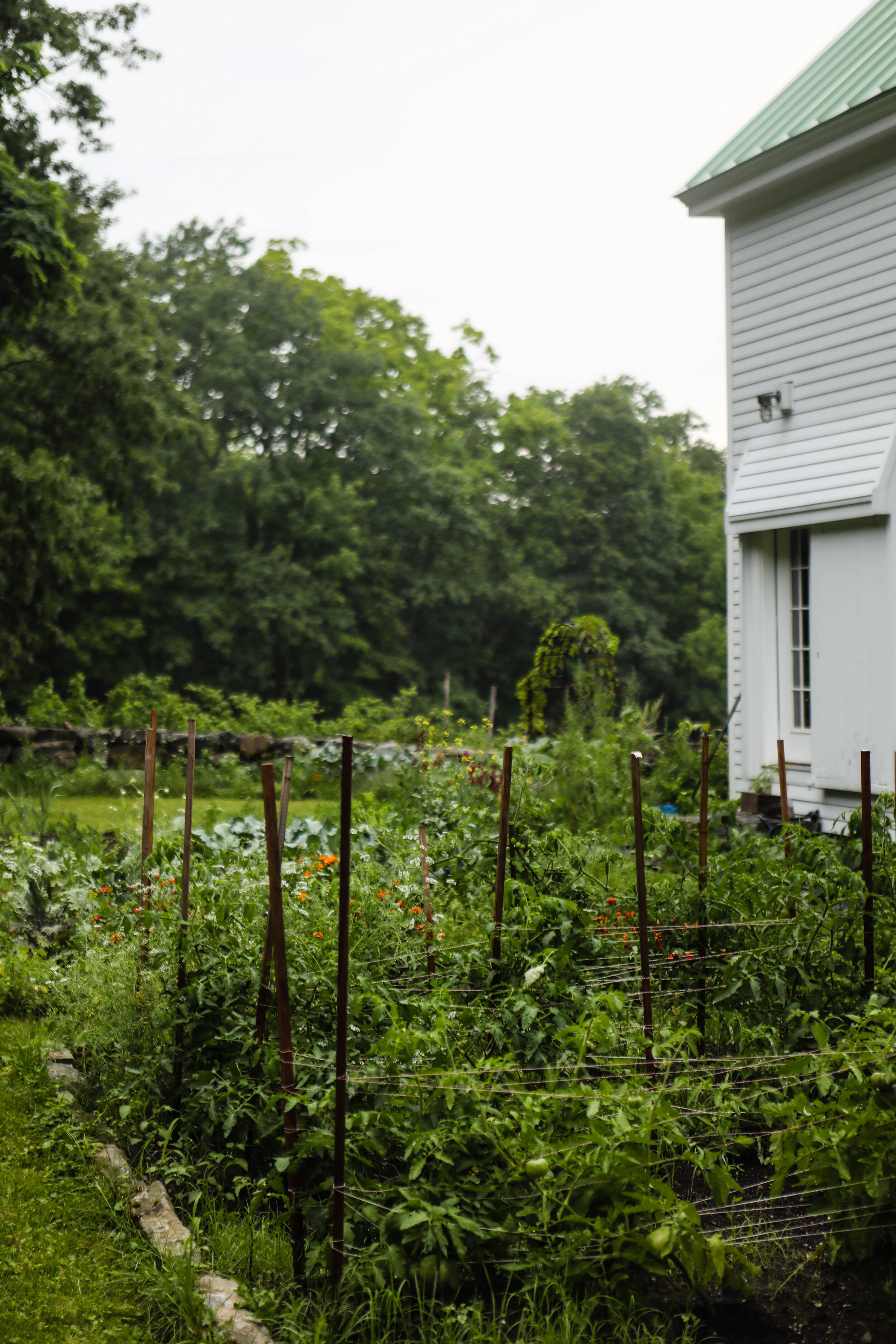GONE COUNTRY: Urban Exodus
Ben Ashby
GONE COUNTRY
Alissa Hessler, the creator of Urban Exodus, a website featuring ex-urbanites who left the city and moved to rural areas, as well as current city dwellers who have urban farms and homesteads within cities, takes us inside her rural Camden, Maine garden.
MY HARBINGER OF SPRING IS THE BLOODY GUTS OF RHUBARB POKING THROUGH THE DIRT. Gruesome when it breaks the surface, it quickly blossoms into beautiful ruby stalks. In Maine, we have few perennials, and rhubarb is the first to make its return to the garden. I love celebrating spring with a batch
of rhubarb syrup and combining the sieved remains with some strawberries to make homemade fruit leather.
I’ve lived in a historic farmhouse in the mountains of Midcoast Maine since 2012 when I moved from Seattle with my husband (then boyfriend). Living in a rural area was familiar, but it took a few years to make the transition to the different rhythms of country life, and it took me growing my own food to awaken the cook in me.
I grew up in northern California near the redwood forests, one of five siblings, with a menagerie of misfit animals. I had a pretty idyllic childhood, and while there was tons of music in our house, there was not much good food! My mother, bless her, tried her best in the kitchen. But, she was born during ration times in England after WWII. Food was limited, and she was raised on canned food and the obscure entrails of animals cooked into pies.
Once I was old enough to safely use the stove I started to cook for my two younger sisters...just the basics. When I left home, I survived on Trader Joe’s pre-made meals and salad. I ate to survive;I took no pleasure in the process or procurement of ingredients. Looking back, I can’t believe I lived for so long without really thinking about what I was eating!
Meeting my husband and moving to Maine altered my relationship with food and cooking. My husband grew up in Maine, and his mother is an incredible cook. (I consider it a great accomplishment if she compliments one of my meals!) Her cookbook collection spans six large bookshelves; cooking is her therapy, and she’s joyful when she feeds people. My husband’s step-dad was a “Back-to-the-Lander” who moved to Maine from New Jersey in the late 60s. He keeps an enormous kitchen garden in growing season, and from this, they construct most of their meals.
When we moved to our farmhouse, there were a bunch of stone-lined garden beds, all horribly overgrown. Inspired by my in-laws, I made it my mission to grow food during my first year in Maine. It took the better part of a month to dig them out and restore the soil. I had no clue what I was doing, but I bought some seedlings, added some compost, weeded, and watered diligently.
That first year’s bounty was beyond my wildest dreams. I couldn’t let any of it go to waste—they were my babies—everything had to go to good use. I scoured the web and found recipes for making sauces and meals from scratch using fresh produce.
So at 30, I first tasted a homemade pasta sauce made entirely from things I’d grown...and I nearly fell over. It tasted like heaven. It tasted how I wanted everything to taste. Right then, my passion was born, and its been growing ever since that first delicious spoonful of sauce!
I’ve taught myself to cook. Cooking—like jazz music—requires improvisation and intuition. Baking— like classical music—requires precision and following what is written. I love that cooking rewards experimentation. I find it boring to follow recipes. I typically look at what ingredients I have available, research some recipes online, and choose a few to roughly follow along with.
Even though I discovered cooking later than some, and my cooking passion was fueled merely by necessity to use what I had grown, it’s truly become an everyday joy. I feel so lucky that I get to grow and cook food for my family. I just wish I had done this in the city where I even had a green space in my apartment complex. I just didn’t understand that growing food would be a life-changing event— how simple cooking can be—and how much cooking your own food impacts your life.
I think we are living in a time where convenience outweighs quality for many, and this isn’t good. I know that anything of quality is better, lastingand more fulfilling. And I think while we are in an uncertain time in society, it’s even more important for people to connect with their environment and learn basic self- sufficiency skills. We are just a fewgenerations removed from a time when nearly everyone played a major role in their own survival—growing their own food, sourcing their own water, making their own clothes, etc.
I’d like to become savvier with these “old-fashioned” skills because they are so useful.
I’m drawn to simple, healthy recipes that pack a flavor punch, and I love simple ingredient combinations that work perfectly...like torn, fresh basil sautéed with green beans, salt/pepper, and olive oil.
So, we embrace a slow lifestyle...we make a lot of household things, we grow our own food, we can, and store food to get us through the bleak winter months, we try to fix things before throwing them out, and—most of all—we welcome whatever the harvest brings us... . Every year some things thrive while others wither. A new pest arrives, there’s a drought or a downpour. Living slow and living close to the land...it always leaves you guessing, learning and growing.
— UrbanExodus.com
THE LITTLE THINGS:
Maine is one of just two states where the median age of the farmer is decreasing. Maine celebrates farmers and their fresh produce with many farm-to-table restaurants. I really appreciate the ingenuity of chefs like Sam Richman of “Sammy’s Deluxe” and my dear friend Annemarie Ahearn who started “Salt Water Farm Cooking School” they’re great at using local ingredients to make delicious food year-round!










